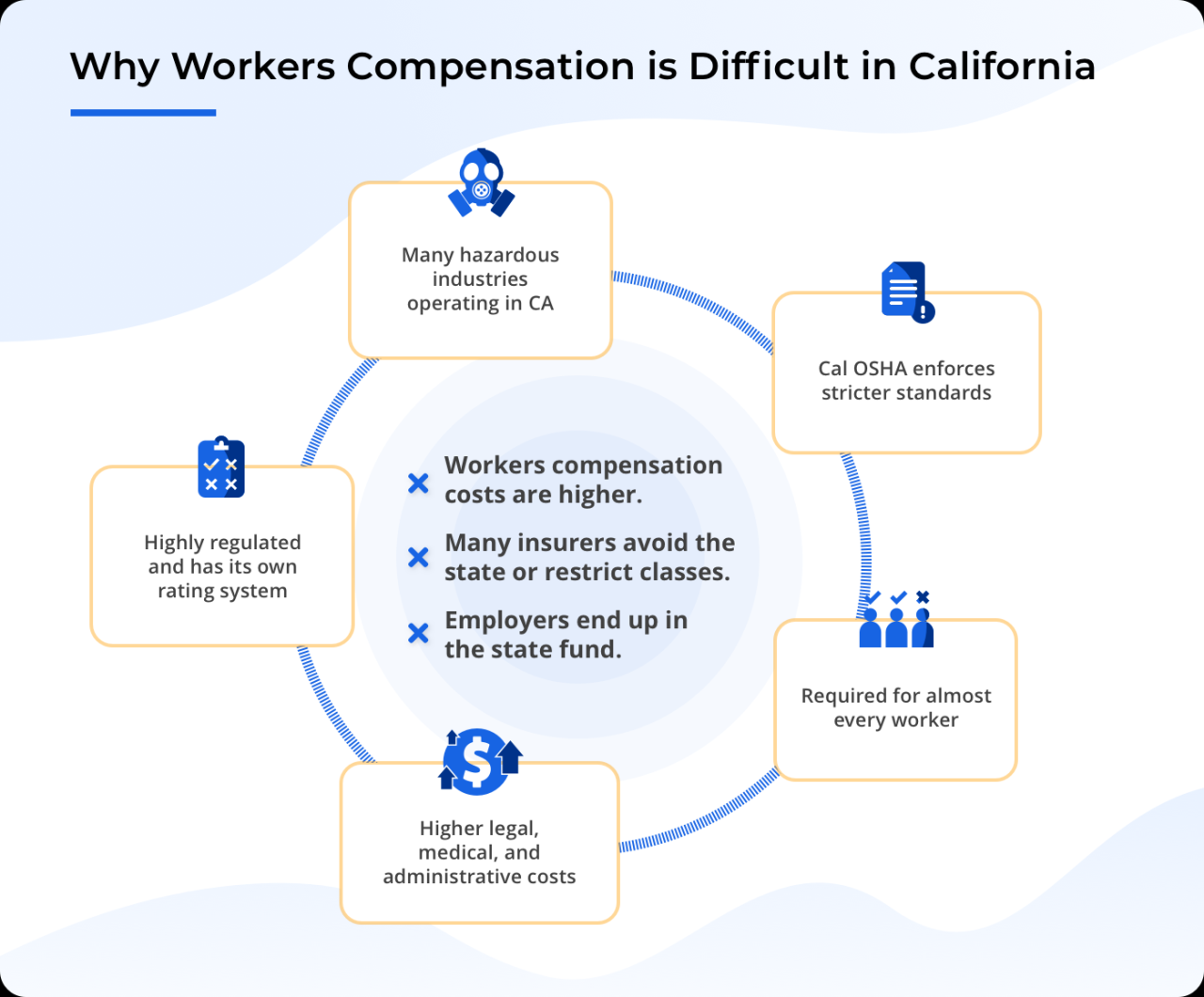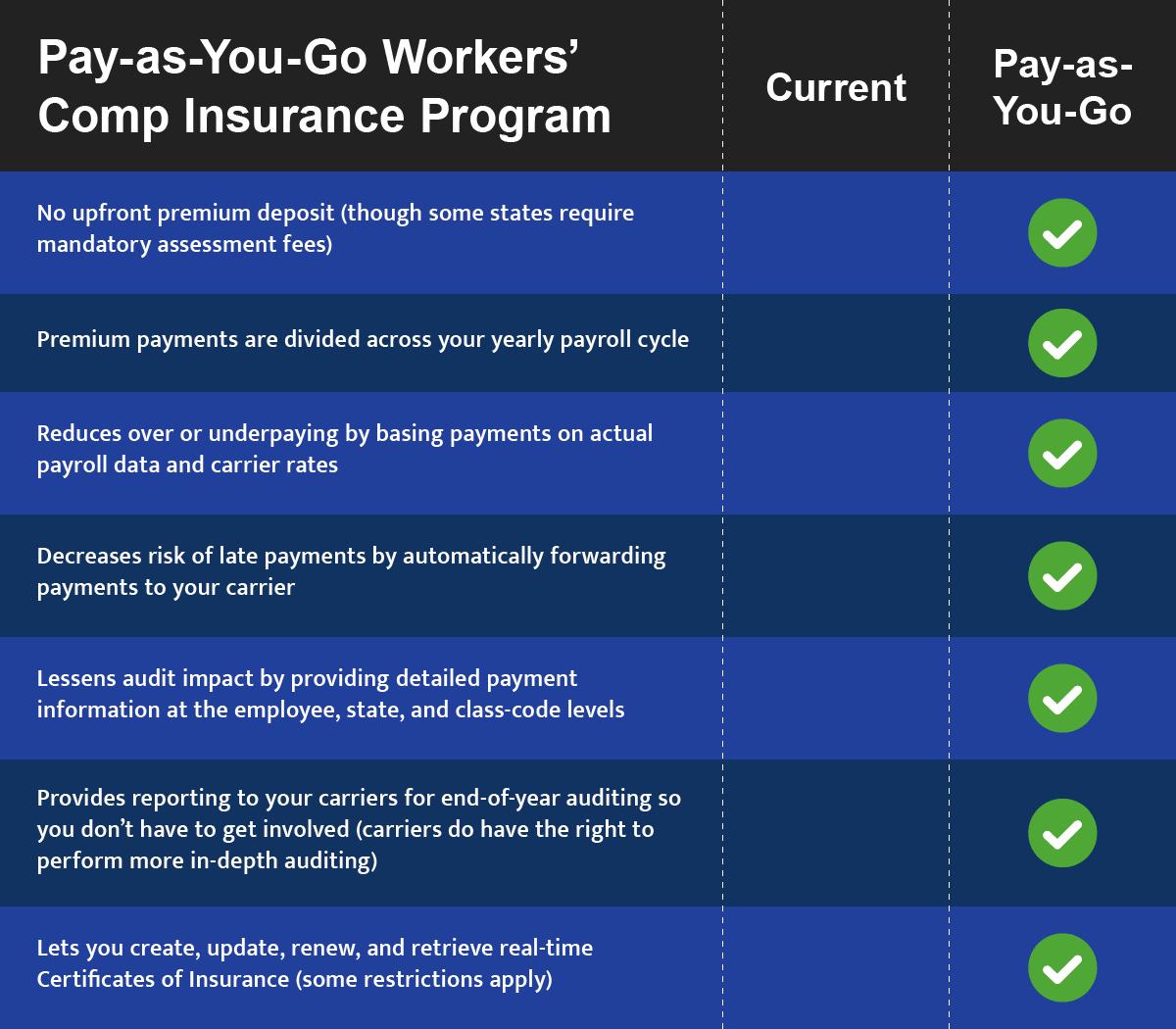Workers compensation insurance california requirements set the stage for businesses in the state, outlining essential guidelines and obligations for employers. From minimum coverage limits to compliance obligations, this comprehensive overview sheds light on all aspects of the topic.
Overview of Workers Compensation Insurance California Requirements
Workers’ compensation insurance in California is designed to provide financial protection for employees who suffer work-related injuries or illnesses. Employers in California are required to carry workers’ compensation insurance to cover medical expenses, lost wages, and other benefits for their employees in case of a work-related incident. Industries such as construction, healthcare, and manufacturing are examples of businesses that are required to have workers’ compensation insurance coverage in California.
Minimum Coverage Limits and Benefits

In California, the minimum coverage limits for workers’ compensation insurance are determined by the state and are subject to change. Benefits provided to employees under workers’ compensation insurance include medical treatment, temporary disability benefits, permanent disability benefits, and vocational rehabilitation. Workers’ compensation insurance provides more comprehensive benefits for work-related injuries compared to other types of insurance.
Compliance and Reporting Obligations, Workers compensation insurance california requirements

Employers in California must take steps to comply with workers’ compensation insurance requirements by obtaining coverage from an authorized insurance provider. Reporting obligations include submitting payroll reports, employee information, and injury reports to the state and insurance carriers. Failure to comply with workers’ compensation insurance regulations in California can result in penalties, fines, and legal consequences for employers.
Cost Factors and Premium Calculation

The cost of workers’ compensation insurance in California is influenced by factors such as the type of industry, number of employees, and claims history. Insurance providers use premium calculation methods to determine the cost of coverage based on these factors. Employers can reduce their workers’ compensation insurance premiums by implementing safety programs, providing proper training, and maintaining a safe work environment. The classification of employees also impacts premium costs, as rates are higher for high-risk occupations.
Final Summary: Workers Compensation Insurance California Requirements
In conclusion, understanding and meeting workers compensation insurance california requirements is crucial for businesses operating in the state. By ensuring compliance, employers can protect their workforce and navigate the complexities of insurance regulations effectively.
Commonly Asked Questions
Who is required to carry workers’ compensation insurance in California?
In California, all employers, including those with only one employee, are required to carry workers’ compensation insurance.
How are the coverage limits for workers’ compensation insurance determined?
The coverage limits for workers’ compensation insurance are determined based on the type of industry, number of employees, and the risks associated with the work.
What are the consequences of non-compliance with workers’ compensation insurance regulations in California?
Failure to comply with workers’ compensation insurance regulations in California can result in penalties, fines, and legal action against the employer.
